Advertisement
Afghan refugees on the North Shore find homes through a creative plan that could help many more
Resume
The basement of St. Paul's Episcopal Church in Newburyport, which for more than two years had served as a makeshift home for two very large Afghan families, was abuzz with activity and excitement. Teenagers and an older man carried boxes up the basement stairs and outside. Women kept an eye on younger children running around, as they removed sheets from beds and told kids to help. Outside the church, 19-year-old Afzal led the way for his younger brothers and sisters, pulling a hand cart loaded with boxes down the brick walkway.
Church members and other local volunteers parked pickup trucks along the curb and helped load up the boxes of the family's belongings and items that had been donated to them.
Afzal wore a wide smile as he worked on the chilly February morning. His family — six siblings and his two parents, all of whom had fled Afghanistan in August of 2021 and arrived in Newburyport a few months later — was moving out of the church basement and into their own home.
"[I'm] happy. Nice home," he said.
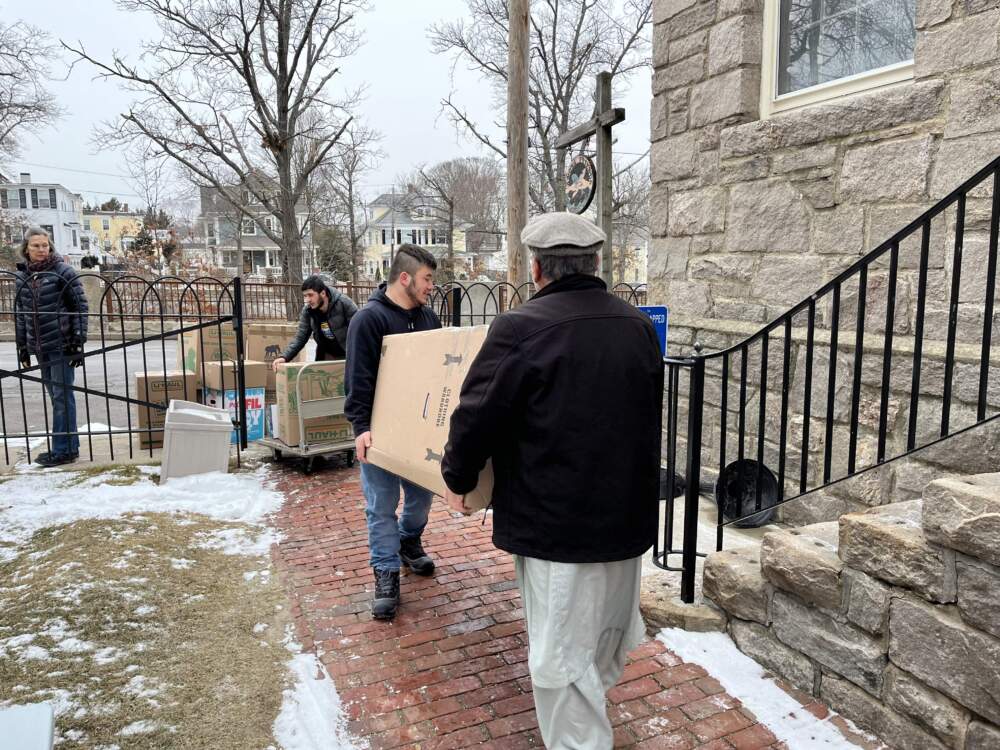
For more than two years, his family and the family of 11 with whom they shared the basement had wondered how they could find permanent housing here that was affordable and big enough. Soon, the other family would move into a separate unit in the same new house.
WBUR is not using the families’ last names because the two fathers worked for the Afghan government and they fear being targeted by the Taliban.
Their move comes thanks to a small army of volunteers and a tireless minister on a mission. And their new homes are the start of what could become the nation's first system of housing dedicated to forcibly displaced families, according to the minister, St. Paul's rector Jarred Mercer.
Momentous move
The house is in the neighboring town of Amesbury. St. Paul’s purchased the two-family building for $724,000, using funds the church raised from local donors to make a sizable down payment. Buying a large house for that price would have been unheard of in Newburyport, where there are very few multi-family homes and the median price of a single-family home is around $1 million.
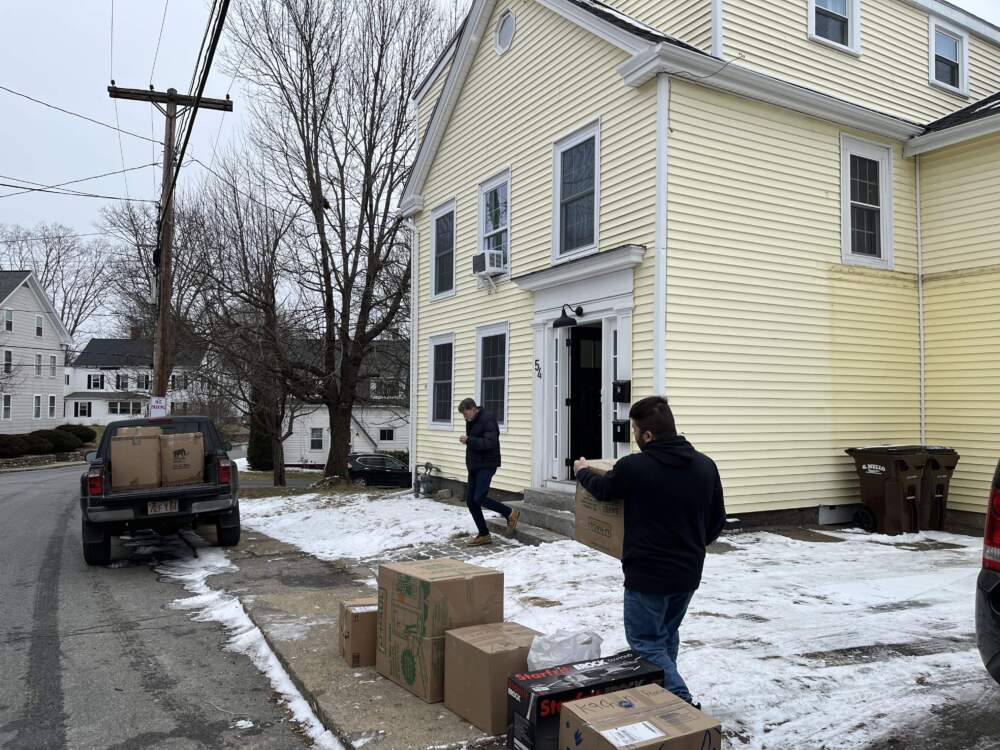
At the house, volunteers carried boxes to the upstairs unit as workers plastered and painted on the first floor. Contractors were hired by the church to renovate the house. One of them donated most of the labor for the project.
One of the volunteers on scene was Sue Blumenscheid, a lay leader at St. Paul’s who coordinated the family’s move. Asked if the day brought any sadness since the family would no longer be present at the church, she said she was focused on the positives.
“They're leaving the church, but, I mean, it's only one town over," Blumenscheid said. "And we're all really close, and we'll be here, and they depend on us, and … I'm just happy for them.”
The kids excitedly showed off their big bedroom, which has three beds in one open area for the girls and three separate nooks where the four boys will sleep. There's a large set of shelves along one wall, with baskets that slide into the shelves like drawers to store the kids' clothing.
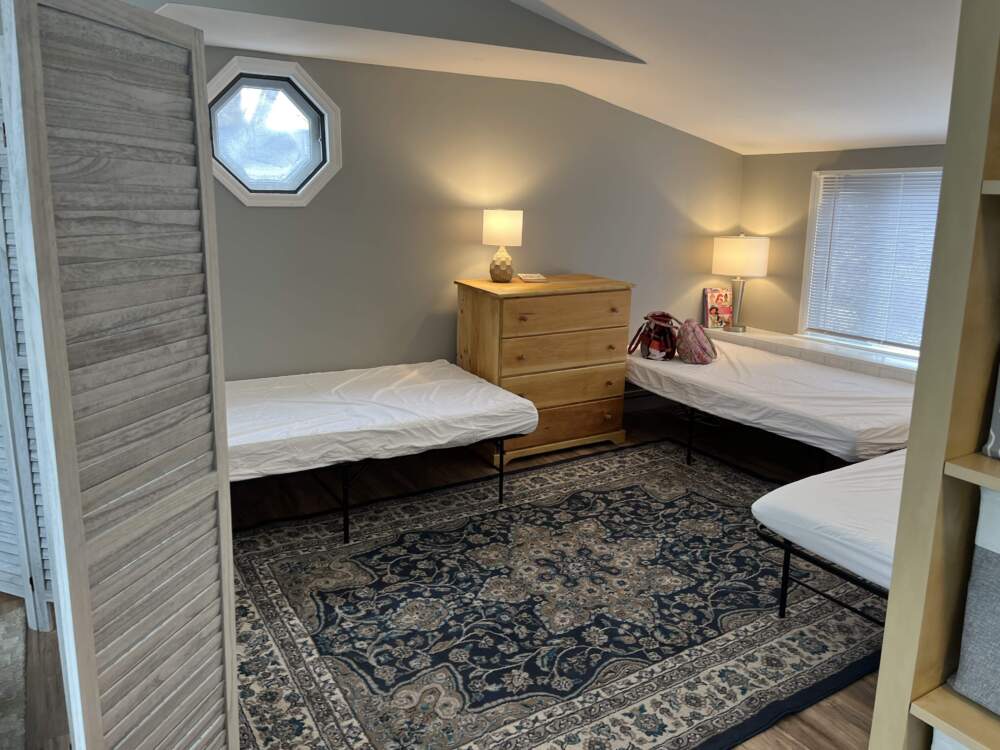
The whole thing is the vision of Mercer, who's led the effort to help the two families since they arrived from Afghanistan. When he realized it would be near impossible to find homes for them in the area, he decided instead to try to create housing — for them and other local refugee families.
Mercer and some other local churches and organizations are starting a resettlement nonprofit to run the new housing initiative.
He recently showed officials from the state’s Office for Refugees and Immigrants around a property the nonprofit wants to convert into three to five housing units. It's a former parish hall at an Episcopal church in West Newbury.
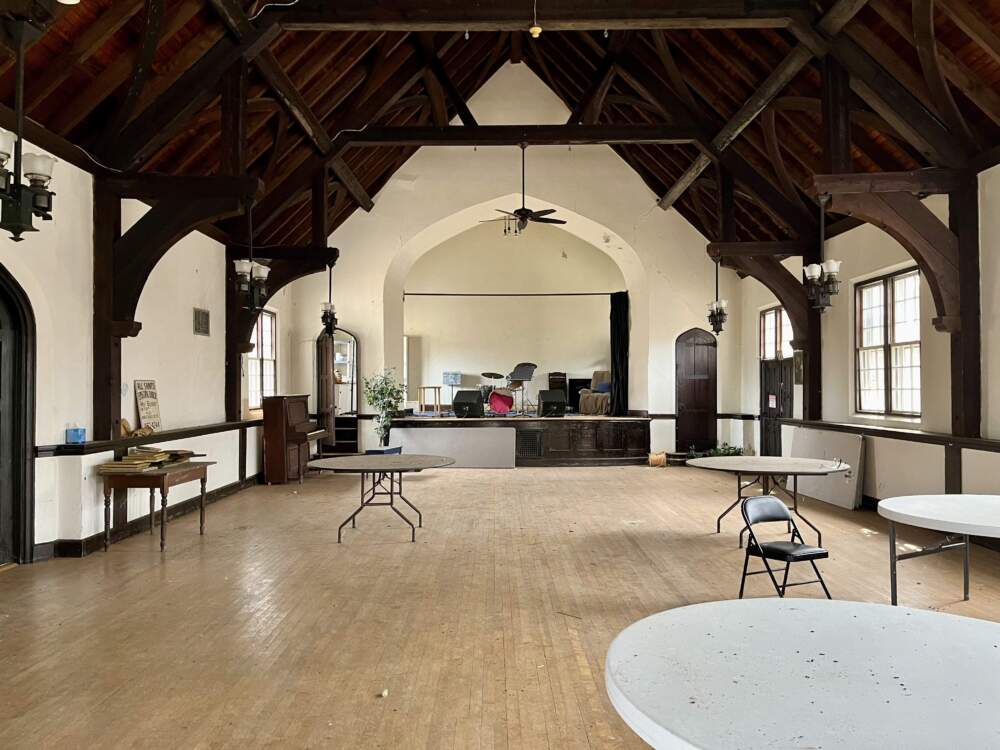
The group has also spoken with Newburyport leaders about a couple of city-owned lots that could support single-family homes for refugees, though nothing has been decided.
“It's absolutely wonderful," said Cristina Aguilera Sandoval, the Office for Refugees and Immigrants’ executive director, applauding what Mercer and his local partners are doing. “And it's a story to be told, to be highlighted and to be replicated in other places. There are ways to think through, you know, what are those spaces in our community like this church that are empty and we can flip to provide safe housing for those families that have been displaced.”
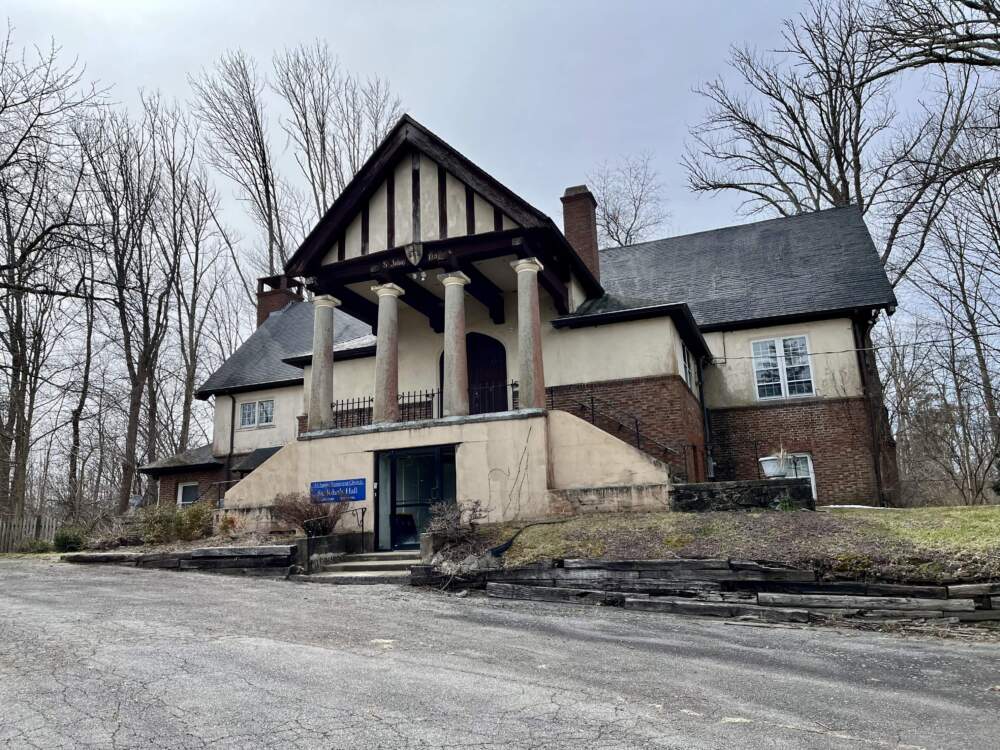
Gov. Maura Healey has called on cities and towns, faith communities and philanthropic organizations to help address the state's immigration and housing crises. Mercer thinks there should be government funding dedicated to housing for refugee families, similar to that for supportive housing for people coming out of chronic homelessness or for public housing dedicated to seniors and people with disabilities.
“Recognizing that it not only benefits this most vulnerable population but benefits everyone who's in need, because right now we're throwing everyone into the same cracking, crumbling pot," he said.
For now, this is the plan Mercer and his local partners have come up with for the homes they’re creating:
The families pay low rents, which are enough to cover the mortgage payments. With the help of fundraising, Mercer expects the nonprofit to quickly pay off the mortgages.
After that, the families' rents will go into special savings accounts for them known as individual development accounts, which are bolstered by donations. Within several years, the families should have enough money to buy their homes from the resettlement nonprofit. The organization will then use those proceeds to develop more refugee housing.
Advertisement
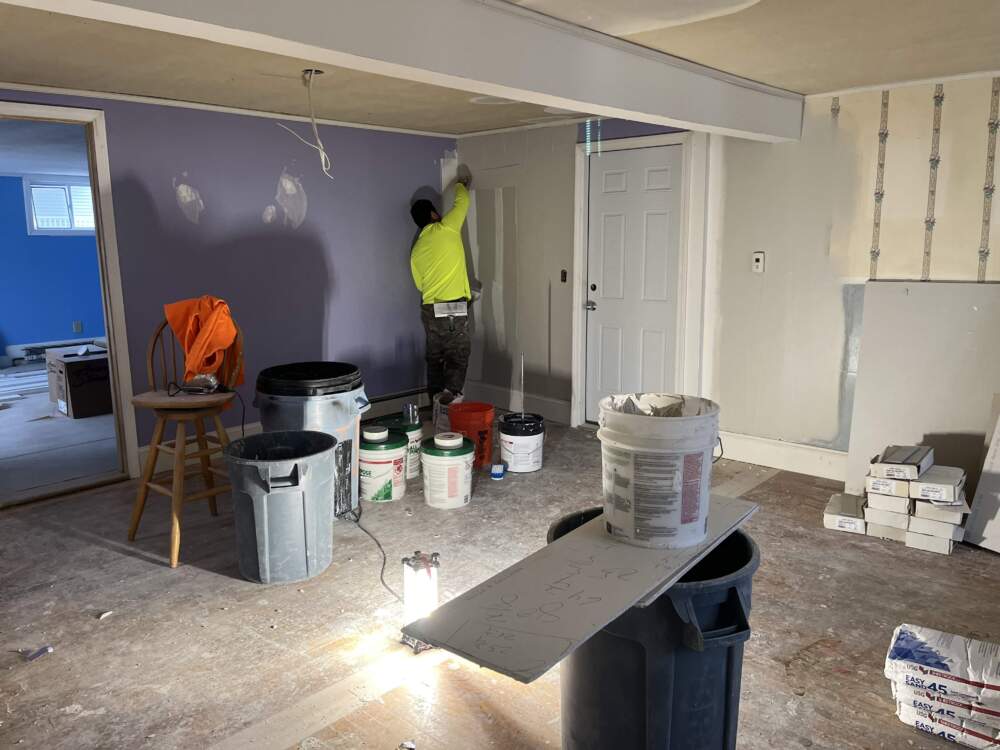
“It has the potential to infinitely expand and create more and more and more and more housing over the years, so that these initial seven to nine homes that we have becomes 12, becomes 20, becomes 35, you know, becomes 50," Mercer said. "But it's also the kind of creativity that's only born out of desperation. … Two-and-a-half years of people living in the church basement… when there's no solutions.”
The resettlement partnership group believes it can develop those initial homes by raising $5 million to $6 million, according to Mercer. The group will be able to keep costs down because they're working with donated land in West Newbury and Newburyport, he said.
The group is still working out what will happen to the housing units when the first families decide to sell. But the homes will have deed restrictions that limit ownership to forcibly displaced families, Mercer said, so the units will likely be sold back to the resettlement nonprofit to start the whole process over again.
A personal touch while feeling financial pressure
A few months after the first family moved, the second Afghan family that was living in the basement of St. Paul’s settled into the Amesbury house.
On the day WBUR visited, Sami, the father, was painting the old, red brick foundation white. Then he moved to his gardening project, digging up and overturning earth to remove weeds and put in some plants. He’s already planted some tomatoes and peppers, and a pretty little flowering tree.
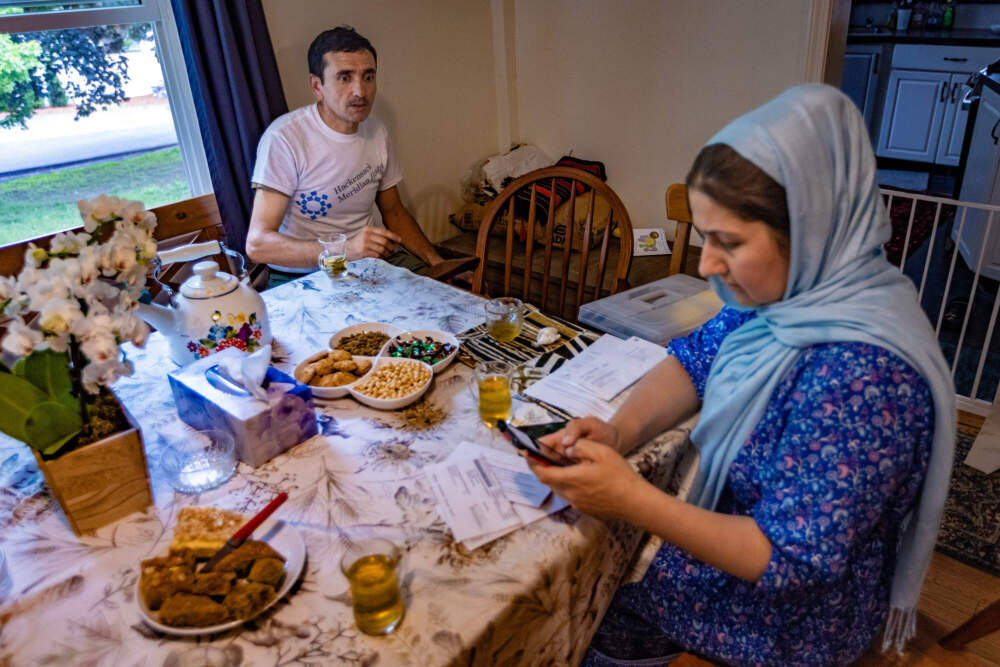
Sami explained through an interpreter — Patmana Rafiq-Kunary, his family’s case manager from the New American Association of Massachusetts — that he has a lot of plans for his little space.
“I want to bring more flower plants," he said. "And also I want to plant some trees here so ... if I live there for longer … they will grow up, and I can sit under the shade. My kids can play under the shade. That'll be great. "
It’s like a slice of his life in Afghanistan. There, he lived with his extended family on a piece of land about 15 times as big as the third-of-an-acre property in Amesbury. They gardened, and his father grew cotton.
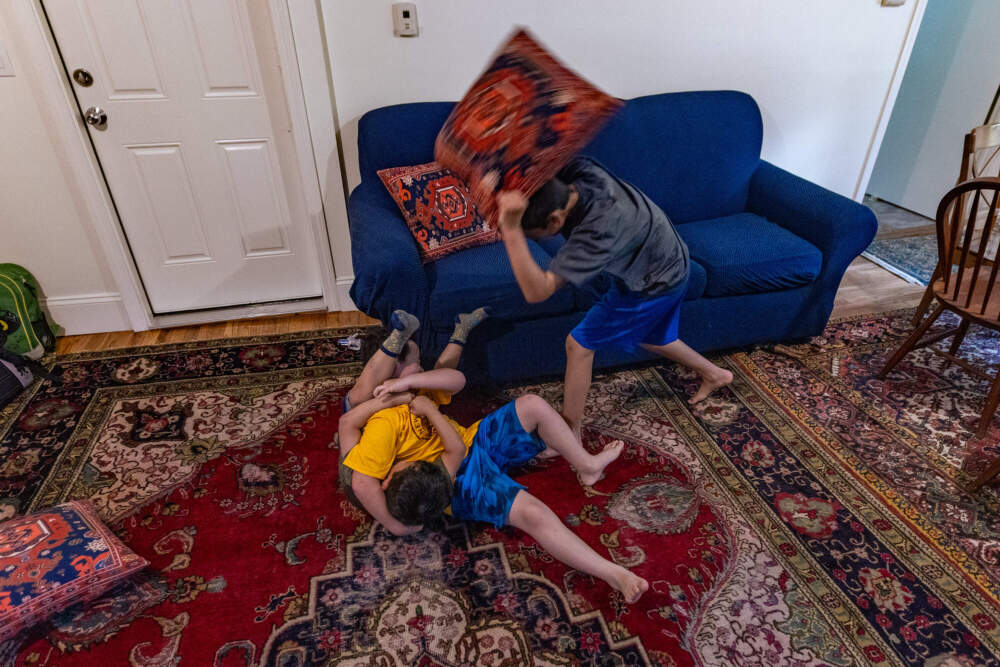
Back inside the house, his three youngest boys wrestled. When all nine of his kids are home like they are now, there’s so much noise, it’s like there’s a party going on, he said.
He and his wife Gulalai sat at the table for tea and snacks with Rafiq-Kunary, who was helping them with some banking on an app. Sami was preparing to leave for his shift as a hospital custodian. He said he’s always thinking about how he’s going to make enough money to support his family.
“I'm trying to work harder, to take my rent and utilities," he said. "And also now we have [a] car, and then we have kids … they want, like, clothes … Kids are working, some of them. If I include their earnings, I can pay my rent. But still, I am under pressure. I'm thinking about other expenses …”
Another visitor was at the house; it was Rev. Jarred Mercer, who stops by regularly to check on the families. It always brings a mix of emotions.
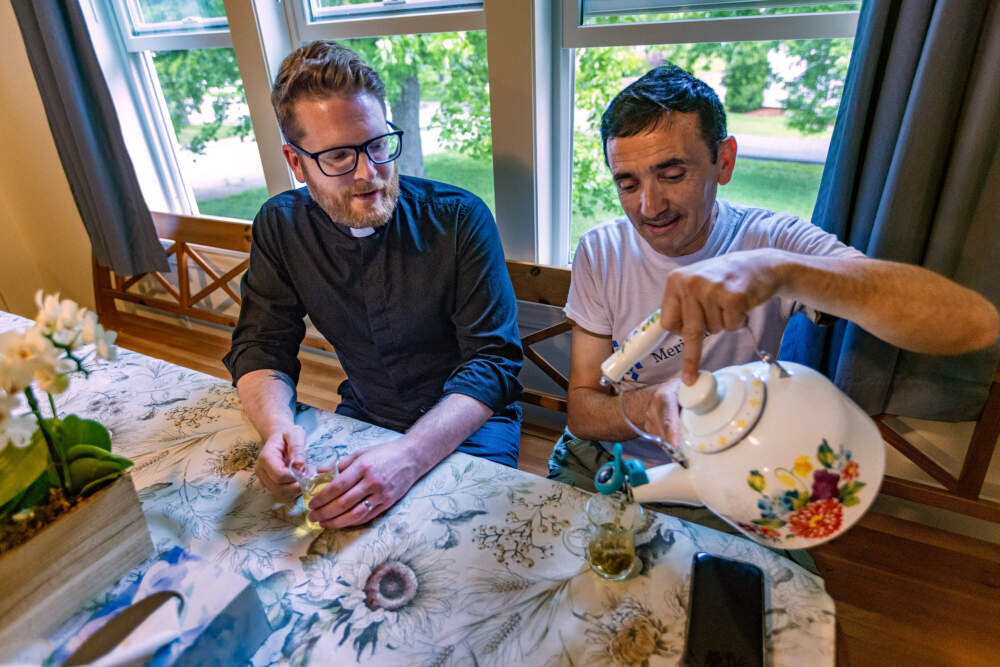
“To walk into this beautiful home is overwhelming," Mercer said. "And I'm overwhelmed with gratitude ... Still overwhelmed, as well, with how far we have to go — what we're still trying to accomplish. But it feels really, really good."
Really good to see the Afghan immigrants moving forward in their new lives here, and for the grassroots effort he’s led to have come up with a plan to develop a system of permanent housing for families who’ve had to flee their homelands.
This segment aired on July 25, 2024.
